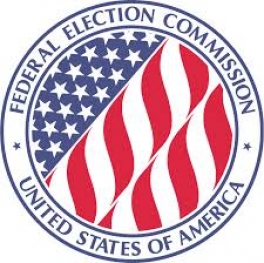McCutcheon and the Regulation of Political Donations

SYDNEY: 11 OCTOBER 2013: The US Supreme Court agreed this week to hear a challenge to federal campaign contribution limits introduced under the Federal Election Campaign Act 1974 (FECA) . The regulation of political donations was introduced in the wake of violations in the Watergate scandal. The Act (as amended) restricts political contributions in two ways.
- Limits are imposed on what individuals may contribute - up to $2,500 per election to federal candidates, up to $30,800 per calendar year to a national party committee and up to $5,000 per calendar year to any non-party political committee.
- An overall limit on the aggregate amount individuals may contribute in a two-year period is also applied - $46,200 to all federal candidates, and no more than $70,800 to federal political action committees and political party committees. Combining those amounts, the aggregate biennial limit in 2011-2012 for an individual is $117,000.
McCutcheon v. Federal Election Commission seeks to overturn the second aspect, that of federal limits on individual contributions. The plaintiffs, Alabama resident Shaun McCutcheon and the Republican National Committee (RNC), contend that this threshold is unconstitutionally low and not supported by a sufficient governmental interest.
McCutcheon donated $38,000 during the 2011-2012 election cycle to Republican interests but was prevented from donating additional funds because it would have violated the FECA’s aggregate limit. McCutcheon argues that this violates his First Amendment rights and filed suit in the District Court for the District of Columbia to overturn the overall limits on what contributors may give in a two-year federal election cycle. This motion was dismissed and is currently being appealed in the Supreme Court.
The McCutcheon case follows hot on the heels of the successful 2010 Supreme Court case taken by Citizens United. This narrow 5-4 decision eliminated the ban on corporate spending in elections. It did not interfere with the focus of McCutcheon’s motion – the limit of finance individuals can give directly to candidates, party committees, and other political committees.
If McCutcheon is successful, the 1976 principle established in the landmark Buckley v Valeo case may be undermined. The Supreme Court upheld the constitutionality of limits on contributions imposed by the FECA of 1971 (as amended in 1974) and the Presidential Election Campaign Fund Act. Buckley v Valeo ruled that donation disclosure provisions were not an infringement of the First Amendment but instead served ‘substantial governmental interests in informing the electorate and preventing the corruption of the political process.’
In its considerations, the Supreme Court will seek to balance McCutcheon’s First Amendment right to associate with others in the political process with the government’s interest in preventing actual or apparent corruption in the political process through campaign spending.
The outcome of the McCutcheon ruling will have no bearing on the influence of “Super PACs”. Wealthy donors such as the Koch brothers , Michael Bloomberg, Sheldon Adelson, Foster Friess and George Soros can legitimately donate unlimited bequests to outside organizations (also known as third parties) who can then spend unrestricted amounts to campaign independently for or against a particular candidate or policy. Ray La Raja argues that attempts to stop McCutcheon’s challenge ‘is a bit like trying to lock your front door against an intruder when the back half of your house has burned down.’ He points to the 2012 elections where donors to outside groups provided roughly $1.4 billion in financing for federal elections compared to just $93.4 million given by donors reaching the maximum overall donation limit that is being challenged in McCutcheon.
An overhaul of the entire political donations architecture may be appropriate as the outcome of Citizens United and McCutcheon chip at the pillars underling Buckley v Valeo.
Lawrence Lessig argues that donations from exceptionally affluent benefactors will warrant dependence by elected officials on the wealthiest Americans. A successful challenge by McCutcheon will not ultimately change this reality. The policy preferences of the ultra-rich - such as economic policies to cut capital gains taxes, reduce top income tax rates and lower the property tax - are not necessarily representative or beneficial for the wider American public.
The influence of money in politics and its effect on the makeup of the financial regulatory system was referenced in the US Financial Crisis Inquiry Commission (FCIC) report of January 2011. The FCIC report into the causes of the American financial and economic crisis, noted the relationship between financial contributions and weak regulation. The FCIC found that the ‘dramatic failures of corporate governance and risk management at many systemically important financial institutions were a key cause of this crisis.’
It observed that ‘the financial sector expended $2.7 billion in reported federal lobbying expenses; individuals and political action committees in the sector made more than $1 billion in campaign contributions’ which deprived America ‘of the necessary strength and independence of the oversight necessary to safeguard financial stability’. The Federal National Mortgage Association, Fannie Mae, for example, ‘used their political power for decades to ward off effective regulation and oversight – spending $164m on lobbying from 1999–2008’.
The redesign of the domestic and global financial regulatory system has focused attention in post-GFC America. Also deserving of attention is the regulation of political donations and the influence, if any, it has on those decision-makers drafting and implementing risk-management systems which seek to regulate the movement of finance.


Add new comment